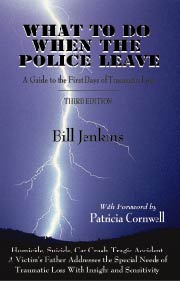State Supreme Courts and other appellate courts have repeatedly ruled that Juvenile Life Without Parole is entirely Constitutional for certain aggravated murders. Courts consistently have recognized the appropriateness of criminal court sentencing in the “middle ground” age for teens, such as 15, 16, 17, wherein adult levels of culpability and understanding are demonstrated and a danger to public safety is clear. The courts usually refer specifically to the recent Roper v Simmons rulings and the Graham v Florida rulings that banned the juvenile death penalty and life for non-homicide cases, but that also quite clearly reiterate the full constitutionality of a life sentence for homicide cases. In fact, the Roper and Graham rulings rely on the existence of the life sentence for the worst cases of teen killers as the basis for their decisions.
11th Circuit Court Weighs Life Sentences for Juveniles Who Kill
The 11th Circuit Court of Appeals heard arguments Wednesday May 11. 2011 in the case of Kenneth Loggins was convicted in Alabama of killing a hitchhiker in 1994 and originally sentenced to die. Loggins was 17 at the time of the killing, and three other people – ages 19, 17 and 16 – were also convicted in the slaying and sentenced to either death or life in prison. Loggins’ punishment was reduced to life without parole after the Supreme Court banned such punishments in 2005. His attorneys argue that the reduced punishment is still too strict of a sentence. They point to psychiatric evidence that shows an adolescent’s impulse control and moral judgment aren’t fully developed by the age of 17, and claim he was a “poster child for rehabilitation.” Defense attorney Julia Wood urged the three-judge panel Wednesday to broaden the Supreme Court’s 2010 ruling in Graham v Florida to include murders. That 5-4 ruling held that juveniles cannot be sentenced to life in prison without parole if they have not killed anyone, and found they should have a “meaningful opportunity to obtain release.” Prosecutors pointed out that the high court ruling went to great lengths to specify it only applied in non-homicide cases. John Neiman, the deputy Alabama attorney general, also said the appeals court shouldn’t consider the argument because Loggins never brought it to a lower court. “The right way to view this case is through a procedural lens,” Neiman said. “The argument that Mr. Wiggins is making is fundamentally different from the same arguments he made in front of the Alabama Criminal Court of Appeals.” Loggins and the three other teens picked up the hitchhiker, Vickie Deblieux, in February 1994 as she was traveling to her mother’s home in Louisiana. They took her to a secluded rural area, where prosecutors say Loggins tackled the woman while another teen kicked and stomped her until she died. Loggins and two others later mutilated the body by cutting off her fingers and thumbs and removing part of a lung. They were arrested after one of the teens was reported to have been showing one of the victim’s severed fingers to friends.
Arkansas
Convicted teen killer William Davis, who conspired to help murder Brittni Pater because she was pregnant with the co-conspirator’s baby, has asked for a re-sentencing and opportunity for release from his natural life sentence. The hearing scheduled for July 2011.
California
Read the news story of the state Supreme Court finding Constitutional the 110 year sentence of a 16 year old gang member Rodrigo Caballero sentenced to a long term of years for carjacking and several attempted murders. Caballero and his attorneys tried to argue, unsucessfully, that the US Supreme Court ruling in Graham v. Florida invalidated his sentence, but the California court did not concur and found his sentence entirely legal. The Supreme Court did NOT say in the Graham decision that long term prison sentences could not be given to younger offenders guilty of extremely serious crimes like multiple attempted murders. The Supreme Court’s ban applies only to sentences that expressly deny any possibility of parole for a juvenile non-murderer, the appellate panel said. Otherwise, a youth who shot and wounded multiple victims “could not receive a term commensurate with his or her crimes if all the victims had the good fortune to survive,” Justice Steven Suzukawa said in the 3-0 ruling.
A California Court considers the retroactivity of the Miller Supreme Court ruling.
Connecticut
In State vs. Anthony Allen the Connecticut Supreme Court upheld the Constitutionality of life sentences for teens in murder cases.
Florida
After the Graham v Florida US Supreme Court ruling that barred Florida from giving life sentences to teens for non-homicide crimes such as attempted murder and aggravated sexual assault, the Florida legislature is making adjustments to their state laws.
Iowa
Oral Arguments have been made in the appeal of RuthAnn Veal for the murder of Catherine Haynes of Waterloo. Catherine’s daughter Laura Shimek is an NOVJL member, and has joined the long list of those concerned with justice and public safety in calling for Veal’s life sentence to be upheld. She was already a repeat violent offender at the age of 14, and the murder was truly horrific and calculated.
Iowa courts have rejected the challenge of a 16 year old who murdered his three year old cousin, and raped and murdered a 14 year old, once again affirming life sentences as appropriate and constitutional for certain cases of teen killers: Judge denies challenge of Concepcion’s life term
Illinois
Illinois Supreme Court hears juvenile sentencing dispute
Posted: Jan 15, 2014 6:25 PM CSTUpdated: Jan 15, 2014 6:26 PM CST
This happened after the U.S. Supreme court recently decided that giving juvenile murderers a mandatory life sentence without parole was unconstitutional, a cruel and unusual punishment.
In the future, life sentences won’t be mandatory, the judges will have some discretion.
The question argued Wednesday in Illinois was whether the courts decision should be applied retroactively, giving some juvenile murderers a new chance at parole.
One victim’s mother was very upset.
Nineteen years ago Marsha Norskog, who lost her daughter in a murder, said after the trail, “I’m very happy that the other families will be spared the tragedy of losing a child because Steven will never, ever step foot on the street again.”
Norskog was confidently predicting that Steven Pfiel would spend the rest of his life in prison for murdering two people, Norskog’s thirteen-year-old daughter Hillary, and his own brother.
But today, Norskog watched as the Illinois Supreme Court considered whether killers like Pfiel should be able to make a case for parole.
“I believe it’s an insult to our judicial system to say that they deserve to be heard again. What does that say about our judicial system. I think it’s a slap in the face,” Norskog said.
Pfiel had just turned 17 when he beat and stabbed Hillary Norskog. It’s because he was a juvenile that his sentence could get another look.
Much like David Biro, who was 17 when he murdered Richard and Nancy Langert in their Winnetka townhouse in 1990. Nancy’s mother, Joyce Bishop, was there Wednesday too.
“To see his picture in the paper and hear people talk about how sad it is that he’s being incarcerated, it’s more than I can bear,” Bishop said.
The specific case argued Wednesday, however, involved neither Pfiel or Biro, but Addolfo Davis.
He was just 14-years-old when he joined two other gang members on a robbery, which ended as a double murder.
Although he didn’t do the shooting, he was tried as an adult, convicted as an accomplice for the murders and received the mandatory life sentence without parole.
Davis’ attorneys argued Wednesday that as the U.S. Supreme Court suggested, the sentencing judge should have been allowed to consider Davis’ troubled upbringing, the fact he was only an accomplice and the possibility that he could change for the better.
“Our argument is that under any circumstance a fourteen-year-old child who was not the trigger person should not be sentenced to life without parole, and that he has served twenty three years in prison and that should be enough,” Defense attorney Patricia Soung said.
Davis’ cousin was in court, and agreed.
“I think any child who got life without parole at the age of fourteen-years-old should have a second chance,” Davis’ cousin, Shanna Davis, said.
Six other states have already dealt with this issue, three of them found that the Supreme Court’s decision should be applied retroactively, with juvenile murderers getting another look at their sentences.
Three states found it should not.
New Jersey
State Supreme Court mulls over rules for trying juveniles as adults
Wisconsin
The WI Supreme Court considers sentencing of 14 year old killer













